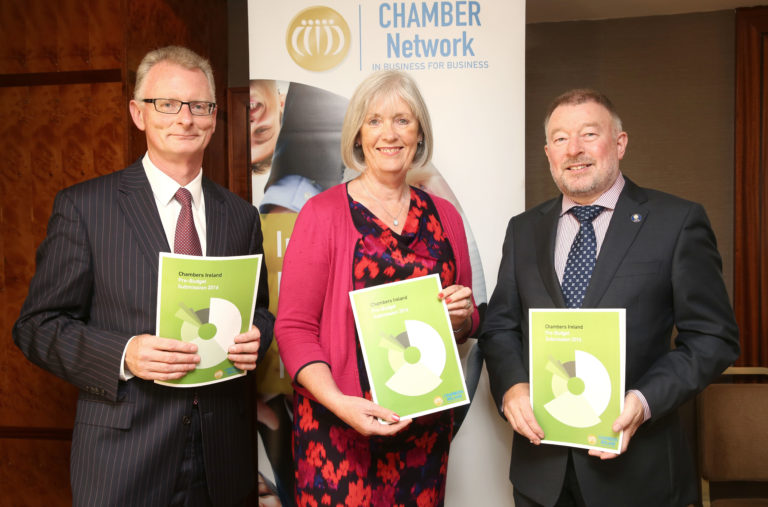Budget 2016: Entrepreneurs Must Be Incentivised, Not Penalised

Chambers Ireland has called on Government to use Budget 2016 to support local economic development and sustain Ireland’s economic growth. The call came at the launch of Chambers Ireland’s Pre Budget 2016 Submission in Dublin on Wednesday, 8th July 2015.
Martin Doyle, President Wexford Chamber, said “Government has already indicated that Budget 2016 will be an expansionary budget but how this is implemented will determine our economic future. Budget 2016 must underpin a strategic plan to support development, job creation and insulate Ireland’s economy from external shocks. We have made a number of recommendations as to how this can be achieved.”
“We need a clear focus on driving indigenous business growth and developing a culture of entrepreneurship which will support job creation and economic stability. Entrepreneurs should be incentivised, not penalised. With this in mind, we have made a number of proposals around taxation, key to those being reforming the tax system for owner-directors and the self-employed and reducing Capital Gains Tax to 20% for active investments.”
“Supporting local economic development must be a priority. Cork Local Authorities have had great success with their scheme to ring fence 1% of commercial rates to fund local economic development. Government need to incentivise this practice across all Local Authorities by centrally matching a portion of the fund. This will ensure that our recovery reaches all areas and jobs are created where they are most needed.”
“Ireland needs to invest significantly in its social and physical infrastructure. We need to greatly improve our childcare services if we really are to reach full employment and a smart economy. Key transport infrastructure projects that will deliver long term value to the economy must also be prioritised.”
Following consultation with Chambers across the country, Chambers Ireland has made a number of recommendations including:
- Ensure equity in the tax treatment of owner-directors and self-employed;
- Reduce the marginal tax rate to below 50% and simplify structure;
- Make childcare affordable by introducing direct public subvention and reforming the ECCE scheme;
- Allow investors who use the Employment and Investment Incentive to claim full relief up front;
- Reduce Capital Gains Tax to 20% for active investments;
- Incentivise Local Authorities to ring fence a portion of commercial rates for local economic development with matching funding from the Exchequer;
- Prioritise investment in infrastructure to ensure we can support our future economic growth; and
- Develop State supported crowd-funding programmes to fund social investments.
